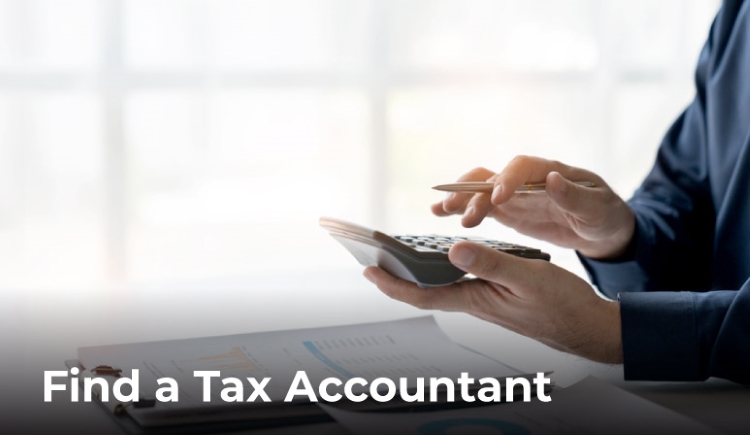- Notifications

We will only notify the newest and revelant news to you.
With the complications of today's financial world, a tax accountant is an integral component for any individual or business. The charge laws and controls in continuous flux allow a tax accountant to offer very critical capacity and support to guarantee compliance and position optimization of charges. In this paper, an explanation of what a tax accountant is, how to find one, what they do, their responsibilities, and services provided will be discussed.
A tax accountant is the person who works as a specialist in the preparation, examination, and management of taxes for individuals and businesses and other organizations. They are abreast with the information regarding the rules and regulations of the geography, and they have the expertise needed to minimize tax liabilities while maximizing tax benefits for clients.
A tax accountant plays a key role in financial planning and decision-making and provides some insights and strategies regarding ways to minimize tax liabilities.

What is a Tax Accountant?
Finding the right tax accountant is essential for ensuring accurate tax recording and effective financial management. Here are a few steps to help you find a reasonable tax accountant:
Know the specific services you need from a tax accountant—perhaps charge arrangement, charge arranging, or representation in case of an audit. Knowing what you want will help you pick an accountant with the right competence and experience.
Look for suggestions from companions, family, or commerce partners who have had positive encounters with tax bookkeepers. Individual referrals can give profitable bits of knowledge into the accountant's polished skill, skill, and unwavering quality.
Utilize online assets to rummage around for charge bookkeepers in your region. Survey their websites, client tributes, and proficient profiles to gauge their ability and notoriety.
Validate the qualifications of the proposed tax bookkeepers, being CPA, CA, or CTA qualifications. The credentials go ahead to demonstrate that the bookkeeper met demanding professional criteria and is most likely to possess the skills required.
Organize face-to-face forums with proposed tax bookkeepers to consider your needs, their services, and their approach towards tax management aspects. It allows the testing of their communication abilities, devising professionalism, and their fit into the goals of financial soundness of the client.
The right tax bookkeeper can make a critical distinction in your money-related results by guaranteeing compliance and optimizing tax productivity.

Find a Tax Accountant
A tax accountant performs a wide range of missions to assist clients in overseeing their charge commitments and optimizing their monetary procedures. Some of the key functions of these professionals are:
Tax accountants prepare and file tax returns for individuals, companies, and organizations. They make sure that all necessary paperwork is complete and accurate, thereby minimizing the risk of errors and possible audits.
Tax accountants design tax strategies to minimize liabilities and maximize investment funds. They review monetary conditions and advise on actions that can be done to enhance assess statuses, like utilizing judgments, credits, and exclusions.
Tax accountants use financial statements and ledgers to interpret tax planning ideas and pinpoint saving opportunities. They give insights to financial performance and help the client make decisions based on information obtained.
Tax accountants ensure their clients are compliant with the law and are updated with any legislative changes. Taxation legislation changes often occur and thus, accountants advise their clients on how such changes should affect their strategies.
In the event of an audit, tax accountants defend and represent their clients. They will help in the collection of documents, respond to the questions raised by taxing authorities, and negotiate a settlement if necessary.

What Does a Tax Accountant Do?
The roles of a tax accountant are diverse and all-embracing. Some of their important roles can be listed as follows:
Tax accountants are expected to plan and record accurate and timely tax returns. They collect and analyze financial data, plan for taxes, and ensure that every significant charge law is complied with.
Tax accountants render professional advice to their clients regarding taxation matters for them to make informed decisions aimed at minimizing liabilities and maximizing benefits. They advise on tax-efficient money-related procedures and venture choices.
Being aware of the changes in laws and regulations regarding the tax may be among the most fundamental responsibilities of tax accountants. They advance the update at every step, with compliance, in order to determine the opportunities of tax savings.
The tax accountants are representative accountants for clients, taking control over the entire procedure in a tax audit starting from the allocation of the evidence, contacts with the taxing authorities, to representations during negotiations and settlements.
Tax accountants help in a multitude of ways to satisfy clients' needs whether for personal or business requirements. The most popular services are:
Tax accountants aid in tax planning, arranging, as well as in compliance. They help individuals to maximize their discoveries and credits, thus ensuring that they only pay what is required.
To the business world, tax accountants render services ranging from tax preparation to planning and even consultancy services. They provide businesses with help in knowing ways through which they can navigate complex charge controls that optimize charge positions and oversee compliance dangers.

Tax Accountant Services
International tax tax accountants offer experience in cross-border transactions, the valuation of trades, and global tax compliance. They support businesses to meet the challenges of global tax laws and regulations.
Tax accountants offer estate and trust taxation-related services to contribute to the proper planning for wealth transfer and to minimize estate tax liabilities. They therefore offer advice on the tax issues involved in the various estate planning strategies.
When your fee bookkeeper's results are audited, or in the event of a dispute, the experts will provide representation and support on matters concerning tax. For you, they will work with taxing authorities to address the issue and reach an agreement on your behalf.
A tax accountant has foremost significance to assist individuals and organizations with disentangling, in harsh or smooth terms, the intricacies in the duty framework. Through giving proficient guidance, consistent help, and vital preparation, a tax accountant lines up with the benefit of clients' inclinations in improving their expense positions to achieve monetary achievement. Whether you really want assistance with charge readiness, arranging, or review portrayal, a qualified tax accountant can give the skill and backing important to successfully deal with your duty commitments.
Latest news & insights from around the world brought to you by One IBC's experts
We are always proud of being an experienced Financial and Corporate Services provider in the international market. We provide the best and most competitive value to you as valued customers to transform your goals into a solution with a clear action plan. Our Solution, Your Success.